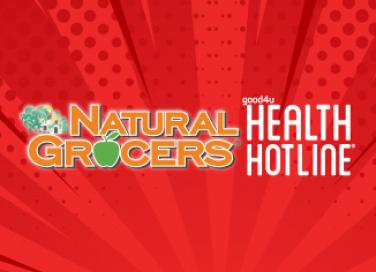


Sign-up for {N}power to get exclusive discounts, newsletters, members-only features, and more!
 Denver - Design District - Alameda and Broadway
Denver - Design District - Alameda and Broadway
368 S Broadway
Denver, CO 80209
United States
 Preferred Store:
Select a Store
Preferred Store:
Select a Store
Heterocyclic Amines (HCAs) are what the Art of Grilling is NOT about! These carcinogenic compounds form when proteins, sugars, and creatine in meat react at high temperatures, but the upside is—we have some great good4u tips to help reduce their formation. We want you to showcase your skills at the grill in the most mouthwatering style while keeping your menu rooted in health!
Temperature, time, and even how often you wield the spatula matters. Healthier burgers aren’t flame-broiled or well done—they’re cooked at lower temps, flipped frequently, and served without charred black edges. Once temps begin to reach 400°F, HCA formation increases, and well-done meat has significantly more of them, so keep it low and juicy.
A 2015 study tested the effect of three types of beer— pilsner, non-alcoholic pilsner, and dark beer— used as marinades on the formation of HCAs in charcoal-grilled pork, compared to pork that has not been marinated. While all three beers resulted in a significant decrease in HCAs, the dark beer was most effective, resulting in 90% less HCAs forming compared to the non-marinated pork. A previous study found similar results with beer and beef.
Did you know Natural Grocers sells organic beer and wine? Check out our stores with beer and wine sections to stock up on healthier indulgences!
A simple and highly effective way to reduce the formation of HCAs in your grilled meats is to add a little vitamin E directly to ground meat or apply it to the surface of larger cuts. It doesn’t take much either—all you need is one 400 IU capsule of natural vitamin E (dalpha tocopherol) to treat 10 pounds of hamburger. Researchers have also found that when there are higher levels of vitamin E in the meat to begin with it leads to lower HCA levels in the cooked meat. Grass-fed beef is naturally higher in vitamin E than its grainfed counterpart, four times higher in fact, and nearly twice as high as grain-fed.
There are numerous herbs, spices, and aromatics that have been proven to inhibit the formation of HCAs, likely because of their antioxidant polyphenols— green and black teas, turmeric, rosemary, thyme, garlic, oregano, onion, basil, parsley, cumin, and coriander have all been shown to hinder the formation of HCAs. These all make wonderful additions to both marinades and dry rubs. In the case of ground meat, you can mix them directly into the meat.
Try this tip with our Four Easy DIY Spice Rubs recipe!







Sign-up for {N}power to get exclusive discounts, newsletters, members-only features, and more!
